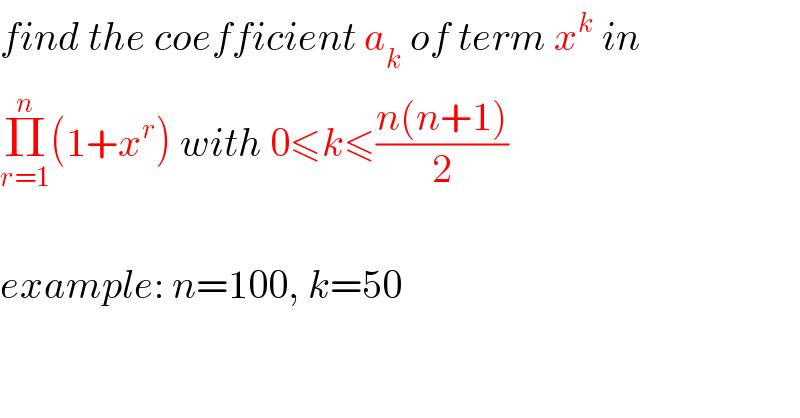
Previous in Permutation and Combination Next in Permutation and Combination
Question Number 73224 by mr W last updated on 09/Nov/19

$${find}\:{the}\:{coefficient}\:{a}_{{k}} \:{of}\:{term}\:{x}^{{k}} \:{in} \\ $$$$\underset{{r}=\mathrm{1}} {\overset{{n}} {\prod}}\left(\mathrm{1}+{x}^{{r}} \right)\:{with}\:\mathrm{0}\leqslant{k}\leqslant\frac{{n}\left({n}+\mathrm{1}\right)}{\mathrm{2}} \\ $$$$ \\ $$$${example}:\:{n}=\mathrm{100},\:{k}=\mathrm{50} \\ $$
Answered by mind is power last updated on 08/Nov/19

$$\mathrm{this}\:\pi\left(\mathrm{n},\mathrm{k}\right)\:\mathrm{ramanujan}\:\mathrm{fonction}\:\mathrm{of}\:\mathrm{partition}\:\mathrm{of}\:\mathrm{an}\:\mathrm{integer}\:\mathrm{n}\:\mathrm{in}\:\mathrm{k}\:\mathrm{integer} \\ $$$$ \\ $$$$ \\ $$
